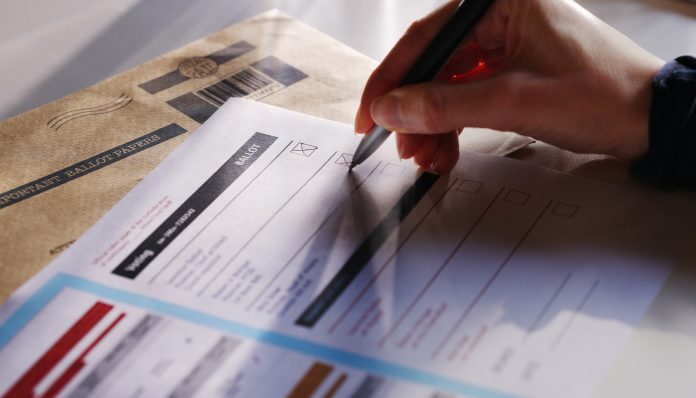The future of democratic processes should see opportunities for everyone to participate at different levels of government – be it local, regional or national. But this participation is far more than just voting, states Alistair Jones, Associate Professor, University Teacher Fellow, SFHEA, Subject Lead Politics and IR, DMU
One of the fixations we have in the UK is about elections being the symbol of our democracy. People are encouraged to cast their ballots; to participate in the democratic process. The problem here is, apart from that trip to the polling station, it suggests voting is the only part of our democracy in which the public can participate. This is a fundamental flaw in the perception of democracy.
A democracy fit for the future should see opportunities for everyone to participate at different levels of government – be it local, regional or national. But this participation is far more than just voting. It is about engaging with our elected representatives, as well as holding them to account for their actions.
Engaging with elected representatives and the public
This, however, needs to be a two-way street: the public need access to the elected representatives, but the elected representatives need to engage more openly with those whom they represent. Far too often in elections, people vote for a party label, oblivious to the person for whom they are casting that vote. At national elections, they think they are voting for a party leader to become prime minister, rather than for someone who will represent their parliamentary constituency. This perception is reinforced by the media focus on who will be the next PM.
As an aside, there has been a lot of criticism of parish and community councillors being co-opted – a significant number are co-opted every year due to a lack of candidates standing for election. Critics argue this undermines our democratic processes. People did not choose these co-opted members. Suggest to them, however, the abolition of the House of Lords or to replace it with an elected chamber, and those same critics of co-opted councillors are vehement in their defence of the House of Lords – an unelected chamber where some members sit through an accident of birth, while the remainder are co-opted.
So, how do we get to a democracy fit for the future? It is not a quick and easy process. There is a need to develop engagement and trust between elected representatives and the communities they represent. Trust of elected representatives takes a long time to build, but can be destroyed very quickly by the actions of a prominent politician. Individual councillors and MPs have worked for years to engage with their constituents, to help and support them, only for the actions of another politician from a different part of the country leading to a loss of trust in all politicians! The consequences are often a withdrawal from democratic processes by members of the public.
Further disengagement from voting without change
If nothing is done to change the current system of democracy, we are likely to see further disengagement from the voting process. The consequence of this will be the politicians only talking to those they believe will vote, and we will continue to see further decline in public engagement with democracy.
It’s also about making participation in democratic processes rewarding – that a pressure group, a community association, or even an individual can be heard in a meaningful manner; that their opinions can inform the debate that leads to legislation. This is not just at the ballot box, but throughout the lifetime of a government. Too often, perspectives from vested interests are chosen to inform legislative proposals – often at the expense of those who are dealing with the issues on a day-to-day basis. This engagement matters more than, for example, changing the electoral system. The systems of Simple Plurality (used in general elections, mayoral elections and some local elections) and Block Vote (used in some local elections) are no longer fit for purpose. Replacing them will not necessarily encourage greater turnout unless the public are engaged in that process. Even that does not guarantee improved voter engagement – look to the New Zealand experiences in the late 1990s and subsequent election turnouts. Ultimately, changing the electoral system may be little more than tinkering around the edges.
Holding elected representatives accountable
Our democracy should also be about holding our elected representatives to account for their actions. The recall petitions to force by-elections can only come about under very restricted situations – basically if parliament permits. Maybe, it should be easier for the public to recall their representatives. This, however, needs to be balanced against spurious party-politically inspired demands. It is not easy to resolve this potential for abuse of the system.
Finally, if people think voting is the be-all and end-all in our democratic processes, what happens if you do not like any of the candidates standing? Spoiling a ballot paper is one option. The Rev. Charles Dodgson (Lewis Carroll) suggested an extra option on a ballot paper – none of the above. For those voters who did not like any of the candidates, this was a real option. If ‘none of the above’ won, then a by-election would be held a week later, with none of the original candidates being allowed to stand. Again, this is not a fool proof process, but it at least gives more power to the voter, for those who think that voting is the be-all and end-all in a democracy.
This piece was written and provided by Alistair Jones, Associate Professor, University Teacher Fellow, SFHEA, Subject Lead Politics and IR, DMU











